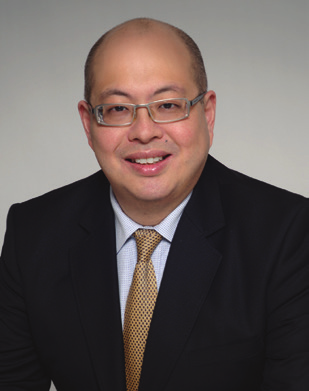
Stroke by Dr Benjamin Chua
Question
My female friend had a stroke recently. She is in her 60s and slightly overweight, so she tries to exercise regularly. Before her stroke, she had to complete a project and only had 2 to 3 hours of sleep every night. I am wondering if the reason for her stroke is due to the recent lack of sleep or if there are other reasons.
Answer
Stroke occurs when the arteries in the brain are blocked or start bleeding. As a result, the part of the brain that is affected does not receive enough blood for it to function. Strokes can manifest in many ways such as headaches (at the onset of the stroke), paralysis of the face and limbs, difficulties in speech, personality changes (long term) and in severe cases, death. There are two types of stroke: An ischemic stroke is more common and occurs when an artery supplying blood to a part of the brain is blocked and interferes with blood flow to the brain. A haemorrhagic stroke occurs when an artery bursts within the brain.
The risk factors for developing strokes include poorly controlled hypertension, diabetes mellitus, high cholesterol levels, smoking and obesity – the same risk factors for heart disease. A person’s blood pressure is affected by many factors, including diet, stress, obesity and the amount of rest one gets. Continuous lack of sleep and stress from work can increase one’s blood pressure. This may then precipitate a stroke. Another risk factor for stroke is the presence of cerebral (brain) artery aneurysms, the abnormal ballooning of the arteries that increases risk of bursting and bleeding inside the brain. This is especially so if the blood pressure is constantly elevated. Other risk factors for stroke that are not within our control include family history, gender, ethnicity and increasing age.
Most strokes can be prevented. Therefore, if you fall into the high-risk category for stroke, you should take steps to reduce this risk. It is always good to take a break and relax when one is under stress. For example, put aside some time to indulge in a hobby or to spend time with friends and family. This helps to reduce blood pressure. It is also beneficial for health to reduce other risk factors for stroke, such as smoking less, drinking less alcohol, losing weight
and keeping cholesterol and blood sugar levels under control (especially when one has diabetes). If you are on medication, remember to take it as prescribed by the doctor. Also ensure that you go for regular health check-ups and talk to your doctor about any lifestyle changes that you will need to make to reduce your risk of developing stroke.
It is extremely important to be able to recognise the signs of stroke so that you can seek treatment immediately. The most common signs of stroke include:
Facial weakness: Such as one side of the face droops
Arm weakness: Unable to raise both arms or one arm drifts downwards
Speech difficulty: Difficulty with speech (speech may be slurred or sound strange)
Other symptoms include difficulty in swallowing, dizziness, severe headache, confusion and numbness in certain parts of the body.

MBBS (S’pore), MHSc (Duke), MRCSEd, FRCSEd
(Gen Surg)
Fellowship, Advanced Endovascular Surgery
(Melbourne, Aust)
Senior Consultant & Medical Director, Vascular & Interventional Centre (a member of the Sincere Healthcare Group)
Brief Bio
Besides being a renowned Vascular and Endovascular Surgeon, Dr Benjamin Chua is also regional proctor and expert live case demonstrator for major endovascular procedures. Dr Chua’s passions include aortic aneurysm, limb salvage vascular and endovenous surgery. He is driven to provide effective treatment for diabetic foot problems to prevent limb amputations and early treatment for aortic aneurysms.A passionate doctor who cares about his patients, Dr Chua has received several patient quality care awards by SingHealth, including the Heart of Gold, Singapore Health Care Quality Gold and Silver awards. At the Vascular and Interventional Centre, Dr Chua provides excellent care for patients with vascular diseases.
Vascular & Interventional Centre
Mount Elizabeth Novena Specialist Centre #07-38,
38 Irrawaddy Road Singapore 329563
T: +65 66842124, F: +65 66842194
W: www.sgvascularctr.com
E: enquiry@sgvascularctr.com , drbenchua@sgvascularctr.com
